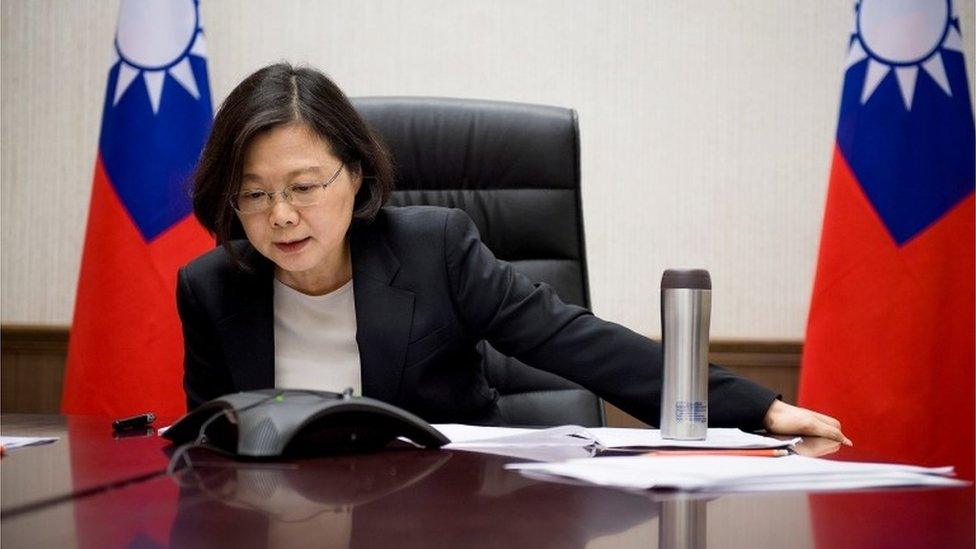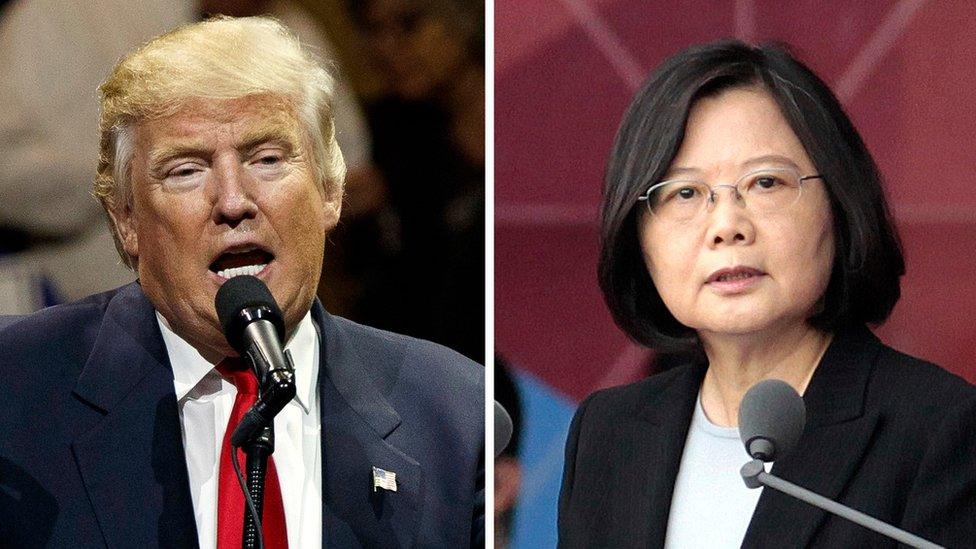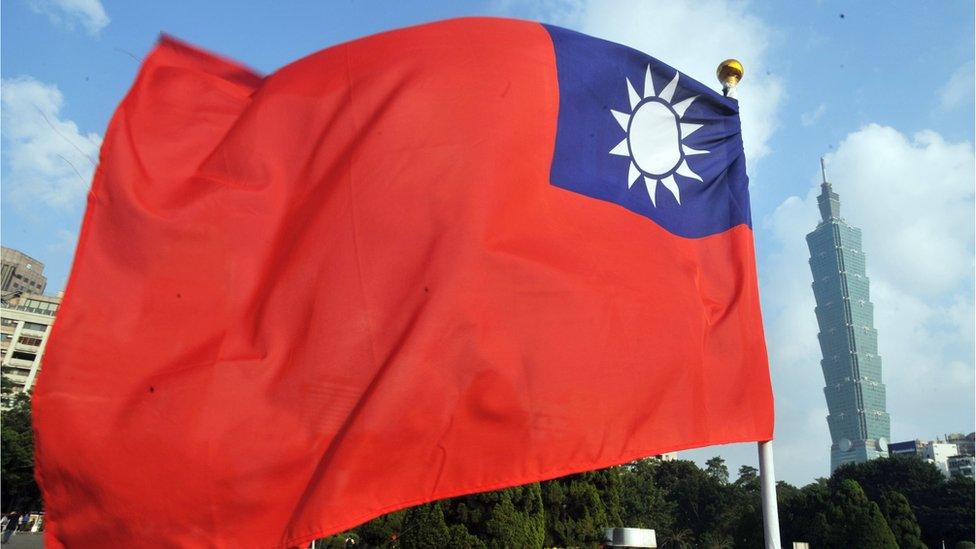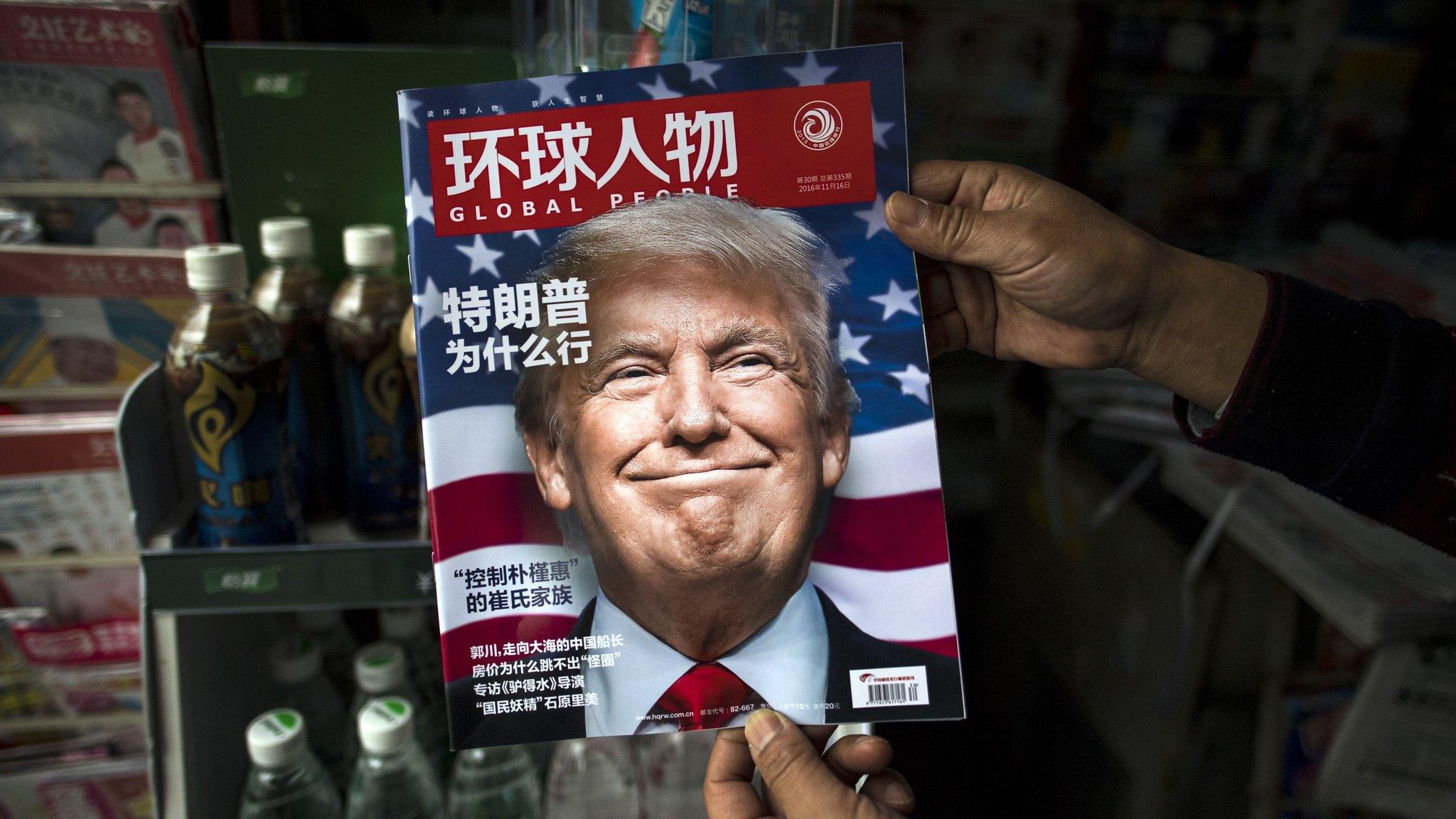White House looks to reassure China after Trump-Taiwan call
- Published

Mr Trump has said Taiwan's leader called him as a courtesy after his election
The White House says it has sought to reassure China after President-elect Donald Trump's phone call with Taiwanese President Tsai Ing-wen.
The call last week sparked alarm as the US does not have formal relations with Taiwan, which China views as a breakaway province.
China lodged a diplomatic complaint in response.
The White House said officials had assured China of their "continued commitment to a one-China policy".
Mr Trump's phone call was followed by two tweets in which he criticised China's monetary policy and its operations in the South China Sea.
'Hard to determine'
Mr Trump has downplayed his conversation with Ms Tsai, calling it a courtesy call.
On Monday, White House spokesman Josh Earnest said it was "hard to determine exactly what the aim was" behind the president-elect's actions.
Carrie Gracie: How might China respond?
But he said the US policy on Taiwan had "been in place for nearly 40 years, and it has been focused on promoting and preserving peace and stability".
"The adherence to and commitment to this policy has advanced the ability of the United States to make progress in our relationship with China and, of course, has benefitted the people of Taiwan," said Mr Earnest.
Beijing sees Taiwan as a province and aims to deny it any of the trappings of an independent state. It has threatened to use force if Taiwan formally declares independence.
Taiwan is not recognised by the US as an independent country and the two have no formal diplomatic relations, but it also does not recognise Beijing's claim over Taiwan.
China's Foreign Ministry spokesperson Lu Kang said US-China relations were always conducted on a "win-win" approach.
"To maintain such sound momentum of development, it will take both sides to work together on the basis of upholding major principles in bilateral relations," he said.
On Tuesday, an opinion piece in the overseas edition of China's People's Daily newspaper said that "provoking disagreements with China will not help resolve US domestic problems, won't help achieve the new Trump administration's domestic agenda".
"Provoking Sino-American frictions, messing up US-China ties will also not help 'Make America Great again'," said the article by Jia Xiudong.
- Published3 December 2016

- Published14 October 2024

- Published5 December 2016

- Published3 December 2016